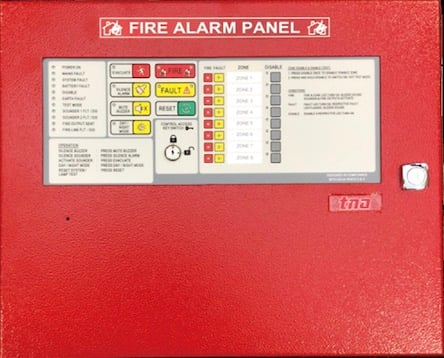Copyright © 2021TANDA Development Pte. Ltd. All rights reserved.Privacy Policy.Site MapDesigned by

These devices are called a fire alarm control panel (FACP), a fire alarm control unit (FACU), or a fire panel. During a fire, they coordinate the actions of many life-saving devices to make it easier to get out of the building safely and get help quickly.
In this article, we'll look at how a fire alarm control panel fits into a full fire alarm system and what these standards mean for choosing a fire panel.

Several important functions may be performed by fire alarm control panels to save lives and protect property. Some of them set off the sprinklers or other fire protection mechanisms, while others don't.
Some send out a signal that is picked up by emergency personnel, while others merely make noise inside or outside the structure. Every fire panel mediates between monitoring equipment and the components that must sound the alarm in the event of a fire or other difficulties with the fire suppression system.
The process is as follows: A fire panel receives an alert from a smoke or heat detector, or a manual call point when it is engaged by a person. When water begins to flow through an activated fire sprinkler system, a flow switch or alarm pressure switch can send a signal to the panel to indicate the system has been engaged.
Any of these signals will cause the fire alarm control panel to light up or make noise, activate nearby bells or other signals, and/or transmit a signal to the fire department or a private monitoring service tasked with alerting the authorities.
Fire sprinkler heads typically activate one by one in reaction to increasing ambient temperatures, however many of these panels cannot activate or supply water to those heads.
However, certain deluge sprinkler systems, for instance, have panels placed that may open or close a deluge valve, allowing fire suppressants to be fed to numerous sprinkler heads at once. In some institutions, panels for fire alarm systems go even further, locking or unlocking doors, turning off the electricity, stopping elevators, or turning on or off ventilation.
Any changes to a fire alarm system must be done by a qualified installer and approved by the authority in charge (AHJ). Several things must be thought about:
For installing or maintaining fire alarm systems, we sell a variety of monitoring and notifying equipment suitable with many fire alarm control panels, such as fire alarm bells, water flow detectors, and tamper switches.
Contact us if you need a conventional control panel for your fire alarm system or if you want further information.